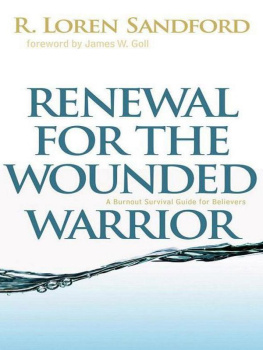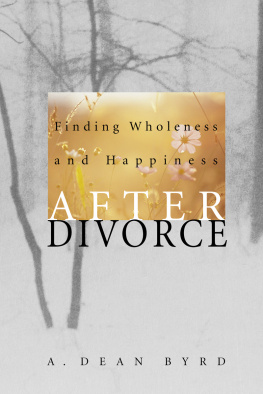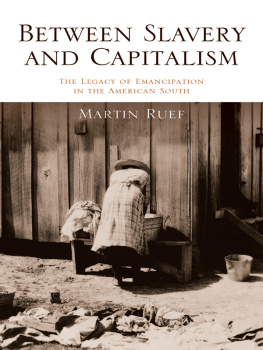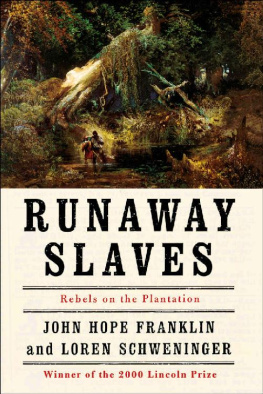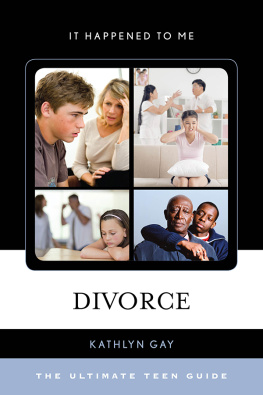Loren Schweninger - Families in Crisis in the Old South: Divorce, Slavery, and the Law
Here you can read online Loren Schweninger - Families in Crisis in the Old South: Divorce, Slavery, and the Law full text of the book (entire story) in english for free. Download pdf and epub, get meaning, cover and reviews about this ebook. year: 2014, publisher: University North Carolina Pr, genre: History. Description of the work, (preface) as well as reviews are available. Best literature library LitArk.com created for fans of good reading and offers a wide selection of genres:
Romance novel
Science fiction
Adventure
Detective
Science
History
Home and family
Prose
Art
Politics
Computer
Non-fiction
Religion
Business
Children
Humor
Choose a favorite category and find really read worthwhile books. Enjoy immersion in the world of imagination, feel the emotions of the characters or learn something new for yourself, make an fascinating discovery.

- Book:Families in Crisis in the Old South: Divorce, Slavery, and the Law
- Author:
- Publisher:University North Carolina Pr
- Genre:
- Year:2014
- Rating:4 / 5
- Favourites:Add to favourites
- Your mark:
- 80
- 1
- 2
- 3
- 4
- 5
Families in Crisis in the Old South: Divorce, Slavery, and the Law: summary, description and annotation
We offer to read an annotation, description, summary or preface (depends on what the author of the book "Families in Crisis in the Old South: Divorce, Slavery, and the Law" wrote himself). If you haven't found the necessary information about the book — write in the comments, we will try to find it.
Families in Crisis in the Old South: Divorce, Slavery, and the Law — read online for free the complete book (whole text) full work
Below is the text of the book, divided by pages. System saving the place of the last page read, allows you to conveniently read the book "Families in Crisis in the Old South: Divorce, Slavery, and the Law" online for free, without having to search again every time where you left off. Put a bookmark, and you can go to the page where you finished reading at any time.
Font size:
Interval:
Bookmark:
FAMILIES IN CRISIS IN THE OLD SOUTH
This book was published with the assistance of the Fred W. Morrison Fund for Southern Studies of the University of North Carolina Press.
2012 The University of North Carolina Press
All rights reserved
Set in Arnhem and The Serif types
by Tseng Information Systems, Inc.
Manufactured in the United States of America
The paper in this book meets the guidelines for permanence and durability of the Committee on Production Guidelines for Book Longevity of the Council on Library Resources.
The University of North Carolina Press has been a member of the Green Press Initiative since 2003.
Library of Congress Cataloging-in-Publication Data
Schweninger, Loren.
Families in crisis in the Old South : divorce, slavery, and the
law / by Loren Schweninger.
p. cm.
Includes bibliographical references and index.
ISBN 978-0-8078-3569-2 (cloth : alk. paper)
1. Domestic relationsUnited States. 2. DivorceLaw and
legislationUnited States. 3. SlaveryLaw and legislation
United States. 4. AdulteryUnited States. 5. Wife abuse
United States. I. Title.
KF505.S39 2012
306.890975'09034dc23
2012002040
16 15 14 13 12 5 4 3 2 1
For Guion Griffis Johnson
and
Helen Tunnicliff Catterall
Pioneer Scholars
Barren County chancery court order /
Tennessee statutes, 18401846 /
Court order for alimony for Sarah H. Black /
Talladega County Courthouse, Alabama /
Evelina Roane /
Bill in chancery of Sarah Duncan /
Perquimans County Courthouse, North Carolina /
African American nanny and her white charge /
1. Jurisdictions: Divorce and Separation, Southern States, 17901853 /
2. Husbands Accused of Adultery, with Sexual Partner Identified by Race and Status /
3. Husbands Accused of Domestic Violence /
4. Legislative Divorce in Maryland, Virginia, and Tennessee /
5. White Women in Slaveholding Families /
6. Average Prices of Prime Field Hands /
7. Complaints and Decrees in Chancery, or Equity, Court, 17791867 /
8. Decrees and Slave Ownership among Plaintiffs Families, 17791867 /
Appendix 2. Petitioners to General Assemblies and to Chancery, or Equity, Courts, 17791867 /
Given current attitudes toward marriage and divorce, it is difficult from todays perspective to understand the critical societal role of marriage and the importance people attached to the family two centuries ago. Unfortunately, for the time period of this study, between the 1780s and the 1860s, there are no precise statistics for marriage and divorce in the United States, but Michael Grossbergs estimate that about 90 percent of all men and women in the country during the nineteenth century married at one time or another is probably correct. In the southern states, there is little doubt that the vast majority of the white population lived in husband-wife-children-kin households.
With most of the population engaged in labor-intensive farm work, children were needed not only to assist in the fields but also to ensure the continuity of the family patrimony. In addition, ministers, politicians, jurists, authors, businessmen, elected officials, and local leaders heralded the family as the centerpiece of democracy, the cradle of morality, and a nursery of patriotism. In 1833, a North Carolina lawmaker declared that social relationships among family members constituted the cement that held the country together. Indeed, he asserted, what else is it but the social ties of family connections, when rendered happy and prosperous by their own industry that stamps a value upon society. In a similar vein, an Alabama chancery judge prefaced an 1848 decree with his belief that the source and fountain of all social virtue is in the family union. Marriage made up the great community of mankind, provided the bedrock for all earthly ties, and created a great chain that binds society together in harmony, peace, and happiness.
Divorce, on the other hand, was viewed as a form of madness, bringing disgrace and dishonor upon a couple and depriving children of the greatest earthly advantage, the nurture and admonitions of a parent. One member of the legislature of the Territory of Orleans asserted that divorce reduced communities to the lowest ebb of degeneracy. It undermined fundamental societal principles, violated all the original institutions of nature, and should not be tolerated, even under the worst of circumstances. In a volume titled Marriage Indissoluble and Divorce Unscriptural, a Virginia Presbyterian minister added that God made Adam and Eve of one flesh and husbands and wives should remain together until death.
Despite these attitudes and pronouncements, the number of southerners seeking to end their marriages rose steadily during the antebellum era. In the early period (17861829), increasing numbers petitioned their general assemblies, and during the late period (183067), even greater numbers, certainly in the thousands, brought their causes, as civil suits were called, to the chancery, or equity, courts. Of course, many couples lived apart without filing formal papers, as husbands or wives abandoned their families, or spouses separated by mutual consent. This was especially true of people at the bottom of the economic spectrum who often could not afford to hire a lawyer or, perhaps distrustful of the legal system, did not wish to submit grievances to assemblies or the courts. Historians have correctly pointed out that self-divorce and remarriage, or bigamy, was probably one of the least prosecuted and most common crimes of the period.
Neither societal taboos against broken marriages nor the unwillingness of many people to expose themselves financially or legally to the process of dissolving their unions diminishes the importance of studying divorce in the Old South. As this study will demonstrate, the decision to seek legal dissolution of ones marriage could not be made lightly; the law required that it be supported by persuasive arguments of domestic turmoil and proven by verifiable charges of violation of the marital bonds, a process that entailed a thorough and unsparing look into the domestic lives of those suing for divorce. It was an adversarial process that made it necessary to uncover the intimacy of family life and to draw in all members of the household, free and enslaved alike, in order to obtain the desired outcome. It demanded of those who decided to go forward not only that they overcome their reluctance to initiate action but that they withhold no details in prosecuting it. As a consequence, divorce offers a penetrating view of one crucial aspect of society in the Old South: families in crisis.
This study examines, analyzes, and summarizes the wealth of information about the domestic life of families in crisis found in a small but representative group of divorce, separation, and alimony cases, drawn from every southern state and most geographic regions within each state and from virtually every year during the first six decades of the nineteenth century (see Appendix 2). The collection includes cases presented by 610 white women, 123 white men, and 35 free persons of color from a total of 211 counties in the 15 slave states and the District of Columbia. In one way or another, all of the cases are connected with race and slavery. In fact, many of the cases were filed by women of the slaveholding class. Not only did these women have the financial wherewithal to hire lawyers and prosecute suits more readily than those with less means, but as members of the most prosperous group in the region, they had the most to lose if their families split apart.
Font size:
Interval:
Bookmark:
Similar books «Families in Crisis in the Old South: Divorce, Slavery, and the Law»
Look at similar books to Families in Crisis in the Old South: Divorce, Slavery, and the Law. We have selected literature similar in name and meaning in the hope of providing readers with more options to find new, interesting, not yet read works.
Discussion, reviews of the book Families in Crisis in the Old South: Divorce, Slavery, and the Law and just readers' own opinions. Leave your comments, write what you think about the work, its meaning or the main characters. Specify what exactly you liked and what you didn't like, and why you think so.

